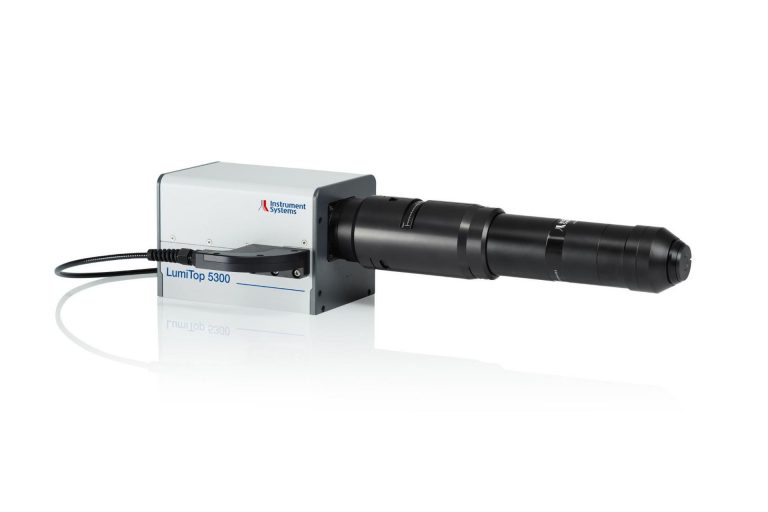Your experts for light measurement solutions
Instrument Systems fosters innovative product ideas with the development of high-level light measurement technology. Our measuring solutions are indispensable for the producers of consumer electronics, displays, VCSEL/laser-based systems, MicroLED wafers, exterior automotive lighting and LED/SSL modules. For many years, we have been actively involved in standardization organizations such as DIN and CIE, and we cooperate with the leading metrology institutes. With its active membership in the MicroLED Industry Association MIA, Instrument Systems is supporting the development and implementation of μLED display technologies. The Optronic Line of products for the automotive industry and traffic technology is developed and marketed at its Berlin facility. Our subsidiary in Korea complements the product portfolio with the Kimsoptec Line for the Korean light & display market. As a subsidiary of Konica Minolta, we have a strong global network at our disposal.
Precise and accurate measurement results from UV to IR
All our light measurement solutions benefit from our high-precision CAS series of spectroradiometers, widely recognized and in use worldwide. Because all radiometric, photometric and colorimetric properties can be calculated by software from the spectral data, the quality and precision of the spectroradiometer is extremely important. This is a core competency of Instrument Systems. In combination with 2D imaging cameras, integrating spheres and goniometer systems, highly precise and accurate measurements from UV to IR can be performed with traceable results to PTB or NIST. Instrument Systems offers also an extensive audit portfolio covering various areas of application as system auditing, audit for cameras & spectrometers, and LED calibration standards.
Test systems in display production lines
For advanced vision applications, Instrument Systems has developed the spectrally optimized LumiTop series: The camera systems record high-precision 2-D measurements of display modules at production speed and permit the testing e.g. of homogeneity, Mura effects, white balance, color gamut, contrast ratio, flicker and pixel defect detection. Image processing is provided by the powerful LumiSuite software with a high degree of flexibility.
Optical testing of μLEDs on a wafer and in modules
With the LumiTop 4000 and LumiTop X150 2D systems, Instrument Systems provides fast, highly accurate and traceable optical measurements of different μLED arrays and display probes. The combination of our high-accuracy CAS 140D spectroradiometer and different LumiTop cameras allows a live adaptive calibration based on the spectral properties of the device under test. In addition, the measurement can be synchronized to the current source of the μLED for speed and high reproducibility. Compared to measuring each LED of the wafer individually, the simultaneously measuring LumiTop system is orders of magnitude faster and still provides spatial and spectral information for every individual emitter.
Quality control for AR/VR devices
To ensure a perfect user experience, extensive and highly accurate optical tests are necessary, not only for the virtual image, but also for the actual display, the optical components and sensors used in AR/VR devices. Instrument Systems has optimized its well-known LumiTop system for production testing of AR/VR near-eye displays (NEDs). Simultaneous measurement of a 2D image, spectrum and flicker makes LumiTop an extremely fast, comprehensive and highly accurate imaging light measurement device.
Efficient characterization of IR sources (NIR LED, VCSEL)
For a 2D analysis of VCSEL arrays in the near- and far-field, Instrument Systems offers the specially developed VTC IR camera. The VTC 4000 near-field camera was specially developed for the ultrafast, precise 2D, and polarization sensitive characterization of all relevant parameters simultaneously for the single emitters of the VCSEL array. The VTC 2400 enables the far-field analysis of IR emitters and offers the optimum measurement solution for both the lab and production environment. The VTC is particularly recommended for the analysis of VCSEL applications, including 3D sensing in smartphones (e.g. facial and object recognition) and in the automotive industry (e.g. LiDAR systems, time-of-flight).




